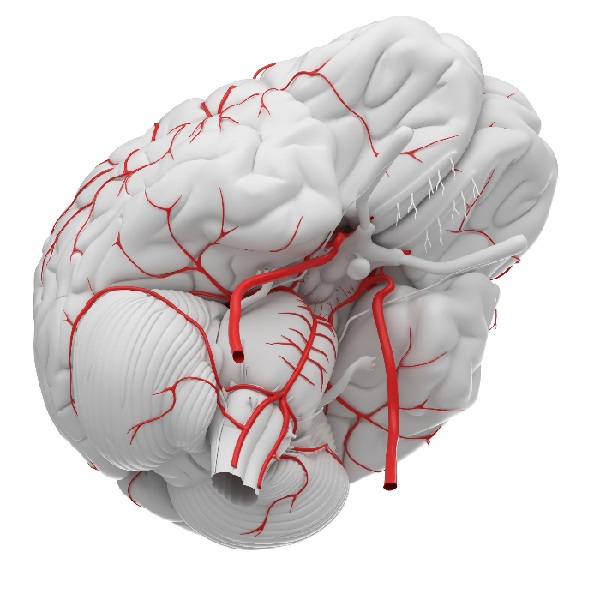New Algorithm Predicts IQ Scores Using fMRI Brain Scans
|
By HospiMedica International staff writers Posted on 28 Aug 2018 |

Image: New research claims to be able to predict a person’s intelligence by using an algorithm and fMRI scans (Photo courtesy of Pixabay).
A team of researchers from the California Institute of Technology (Pasadena, CA, USA), Cedars-Sinai Medical Center (Los Angeles, CA, USA), and the University of Salerno (Fisciano SA, Italy) have developed a machine-learning algorithm that can predict a person's intelligence by analyzing functional magnetic resonance imaging (fMRI) scans of their resting state brain activity.
Functional MRI develops a map of brain activity by detecting changes in blood flow in specific brain regions. By analyzing patterns of activity in their brain, an individual's intelligence can be gleaned when the mind is idle and not doing anything in particular. In order to train the algorithm on the complex patterns of activity in the human brain, the researchers used data collected by the Human Connectome Project (HCP), a scientific endeavor funded by the National Institutes of Health (NIH) that seeks to improve understanding of the various connections in the human brain. The researchers downloaded the brain scans and intelligence scores of about 900 individuals who had participated in the HCP, fed these into their algorithm, and set it to work.
After processing the data, the algorithm was able to predict intelligence at statistically significant levels across the 900 subjects. However, there is still significant room for improvement, as the scans are coarse and noisy measures of what is actually taking place in the brain, and considerable amount of potentially useful information is still being discarded. The researchers hope that in the near future, the MRIs could also be used for diagnosing conditions such as autism, schizophrenia, and anxiety as they are currently used for detecting tumors, aneurisms, or liver disease.
"If trained properly, these algorithms can answer questions as complex as the one we are trying to answer here. They are very powerful, but if you actually ask, 'How do they learn? How do they do these things?' These are difficult questions to answer," said the study’s co-author Paola Galdi.
Related Links:
California Institute of Technology
Cedars-Sinai Medical Center
University of Salerno
Functional MRI develops a map of brain activity by detecting changes in blood flow in specific brain regions. By analyzing patterns of activity in their brain, an individual's intelligence can be gleaned when the mind is idle and not doing anything in particular. In order to train the algorithm on the complex patterns of activity in the human brain, the researchers used data collected by the Human Connectome Project (HCP), a scientific endeavor funded by the National Institutes of Health (NIH) that seeks to improve understanding of the various connections in the human brain. The researchers downloaded the brain scans and intelligence scores of about 900 individuals who had participated in the HCP, fed these into their algorithm, and set it to work.
After processing the data, the algorithm was able to predict intelligence at statistically significant levels across the 900 subjects. However, there is still significant room for improvement, as the scans are coarse and noisy measures of what is actually taking place in the brain, and considerable amount of potentially useful information is still being discarded. The researchers hope that in the near future, the MRIs could also be used for diagnosing conditions such as autism, schizophrenia, and anxiety as they are currently used for detecting tumors, aneurisms, or liver disease.
"If trained properly, these algorithms can answer questions as complex as the one we are trying to answer here. They are very powerful, but if you actually ask, 'How do they learn? How do they do these things?' These are difficult questions to answer," said the study’s co-author Paola Galdi.
Related Links:
California Institute of Technology
Cedars-Sinai Medical Center
University of Salerno
Channels
Artificial Intelligence
view channel
AI-Powered Algorithm to Revolutionize Detection of Atrial Fibrillation
Atrial fibrillation (AFib), a condition characterized by an irregular and often rapid heart rate, is linked to increased risks of stroke and heart failure. This is because the irregular heartbeat in AFib... Read more
AI Diagnostic Tool Accurately Detects Valvular Disorders Often Missed by Doctors
Doctors generally use stethoscopes to listen for the characteristic lub-dub sounds made by heart valves opening and closing. They also listen for less prominent sounds that indicate problems with these valves.... Read moreCritical Care
view channel
Revascularization Improves Life Quality in Chronic Limb-Threatening Ischemia, Finds Study
Researchers have undertaken a detailed study to evaluate the effects of revascularization strategies on the health-related quality of life (HRQoL) of patients with chronic limb-threatening ischemia.... Read more
Powerful AI Risk Assessment Tool Predicts Outcomes in Heart Failure Patients
Heart failure is a serious condition where the heart cannot pump sufficient blood to meet the body's needs, leading to symptoms like fatigue, weakness, and swelling in the legs and feet, and it can ultimately... Read more
Peptide-Based Hydrogels Repair Damaged Organs and Tissues On-The-Spot
Scientists have ingeniously combined biomedical expertise with nature-inspired engineering to develop a jelly-like material that holds significant promise for immediate repairs to a wide variety of damaged... Read more
One-Hour Endoscopic Procedure Could Eliminate Need for Insulin for Type 2 Diabetes
Over 37 million Americans are diagnosed with diabetes, and more than 90% of these cases are Type 2 diabetes. This form of diabetes is most commonly seen in individuals over 45, though an increasing number... Read moreSurgical Techniques
view channel
Miniaturized Snake-Like Probe Images Cerebral Arteries From Within
Endovascular interventions are being increasingly favored for treating strokes and cerebral artery diseases, but rely heavily on angiographical imaging that often struggles with limited contrast and spatial... Read more
Miniaturized Implantable Multi-Sensors Device to Monitor Vessels Health
Researchers have embarked on a project to develop a multi-sensing device that can be implanted into blood vessels like peripheral veins or arteries to monitor a range of bodily parameters and overall health status.... Read more
Tiny Robots Made Out Of Carbon Could Conduct Colonoscopy, Pelvic Exam or Blood Test
Researchers at the University of Alberta (Edmonton, AB, Canada) are developing cutting-edge robots so tiny that they are invisible to the naked eye but are capable of traveling through the human body to... Read more
Miniaturized Ultrasonic Scalpel Enables Faster and Safer Robotic-Assisted Surgery
Robot-assisted surgery (RAS) has gained significant popularity in recent years and is now extensively used across various surgical fields such as urology, gynecology, and cardiology. These surgeries, performed... Read morePatient Care
view channelFirst-Of-Its-Kind Portable Germicidal Light Technology Disinfects High-Touch Clinical Surfaces in Seconds
Reducing healthcare-acquired infections (HAIs) remains a pressing issue within global healthcare systems. In the United States alone, 1.7 million patients contract HAIs annually, leading to approximately... Read more
Surgical Capacity Optimization Solution Helps Hospitals Boost OR Utilization
An innovative solution has the capability to transform surgical capacity utilization by targeting the root cause of surgical block time inefficiencies. Fujitsu Limited’s (Tokyo, Japan) Surgical Capacity... Read more
Game-Changing Innovation in Surgical Instrument Sterilization Significantly Improves OR Throughput
A groundbreaking innovation enables hospitals to significantly improve instrument processing time and throughput in operating rooms (ORs) and sterile processing departments. Turbett Surgical, Inc.... Read moreHealth IT
view channel
Machine Learning Model Improves Mortality Risk Prediction for Cardiac Surgery Patients
Machine learning algorithms have been deployed to create predictive models in various medical fields, with some demonstrating improved outcomes compared to their standard-of-care counterparts.... Read more
Strategic Collaboration to Develop and Integrate Generative AI into Healthcare
Top industry experts have underscored the immediate requirement for healthcare systems and hospitals to respond to severe cost and margin pressures. Close to half of U.S. hospitals ended 2022 in the red... Read more
AI-Enabled Operating Rooms Solution Helps Hospitals Maximize Utilization and Unlock Capacity
For healthcare organizations, optimizing operating room (OR) utilization during prime time hours is a complex challenge. Surgeons and clinics face difficulties in finding available slots for booking cases,... Read more
AI Predicts Pancreatic Cancer Three Years before Diagnosis from Patients’ Medical Records
Screening for common cancers like breast, cervix, and prostate cancer relies on relatively simple and highly effective techniques, such as mammograms, Pap smears, and blood tests. These methods have revolutionized... Read morePoint of Care
view channel
Critical Bleeding Management System to Help Hospitals Further Standardize Viscoelastic Testing
Surgical procedures are often accompanied by significant blood loss and the subsequent high likelihood of the need for allogeneic blood transfusions. These transfusions, while critical, are linked to various... Read more
Point of Care HIV Test Enables Early Infection Diagnosis for Infants
Early diagnosis and initiation of treatment are crucial for the survival of infants infected with HIV (human immunodeficiency virus). Without treatment, approximately 50% of infants who acquire HIV during... Read more
Whole Blood Rapid Test Aids Assessment of Concussion at Patient's Bedside
In the United States annually, approximately five million individuals seek emergency department care for traumatic brain injuries (TBIs), yet over half of those suspecting a concussion may never get it checked.... Read more
New Generation Glucose Hospital Meter System Ensures Accurate, Interference-Free and Safe Use
A new generation glucose hospital meter system now comes with several features that make hospital glucose testing easier and more secure while continuing to offer accuracy, freedom from interference, and... Read moreBusiness
view channel
Johnson & Johnson Acquires Cardiovascular Medical Device Company Shockwave Medical
Johnson & Johnson (New Brunswick, N.J., USA) and Shockwave Medical (Santa Clara, CA, USA) have entered into a definitive agreement under which Johnson & Johnson will acquire all of Shockwave’s... Read more














